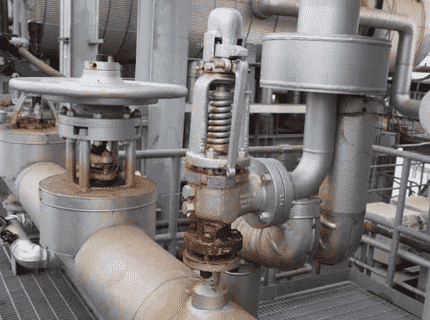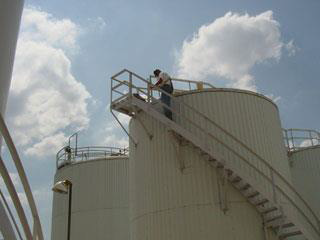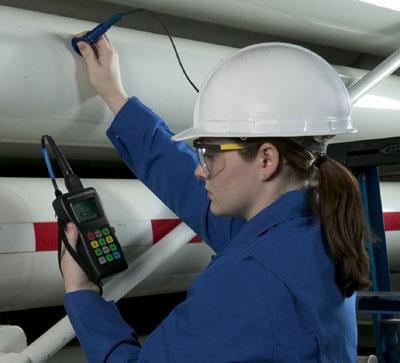COURSE OVERVIEW
FE0029-4D : API 576: Inspection of Pressure Relieving Devices

OVERVIEW
| COURSE TITLE | : | FE0029-4D : API 576: Inspection of Pressure Relieving Devices |
| COURSE DATE | : | Oct 14 - Oct 17 2024 |
| DURATION | : | 4 Days |
| INSTRUCTOR | : | Mr. George Poulos |
| VENUE | : | Al Khobar, KSA |
| COURSE FEE | : | $ 4500 |
| Request For Course Outline | ||
OTHER SCHEDULED DATES
| Date | : | Jan 15 - Jan 18 (4 Days) | Location | : | Doha, Qatar | Classroom Fee (US$) | : | $ 5500 | Course Info |
| Date | : | Apr 15 - Apr 18 (4 Days) | Location | : | Dubai, UAE | Classroom Fee (US$) | : | $ 4500 | Course Info |
Course Description
This practical and highly-interactive course includes various practical sessions and exercises. Theory learnt will be applied using our state-of-the-art simulators. This course is designed to provide delegates with a detailed and up-to-date overview of pressure-relieving devices inspection in accordance with API 576. It covers the recommended practice that describes the inspection and repair practices for automatic pressure-relieving devices commonly used in the oil and petrochemical industries. As a guide to the inspection and repair of these devices in the user?s plant, it is intended to ensure their proper performance. Further, this course will also discuss the dimensional characteristics of pressure-relief valves; the operational characteristics of system and device pressures; the pressurerelief devices; and the causes of improper performance of pressure relieving devices in corrosion, damaged seating surfaces, failed spring, improper setting and adjustment.During this interactive course, participants will be able to describe the plugging and sticking, misapplication of materials, improper location, history or identification and rough handling; the improper differential between operating and set pressures, improper discharge piping test procedures and improper handling, installation and selection of rupture disks; the inspection and testing of pressure relieving devices; the shop inspection and overhauling, visual on-stream inspection, inspection frequency and time of inspection; and the records and reports, its objectives, responsibilities, sample records and report systems. link to course overview PDF
TRAINING METHODOLOGY
This interactive training course includes the following training methodologies as a percentage of the total tuition hours
LecturesWorkshops & Work Presentations
Case Studies & Practical Exercises
Videos, Software & Simulators
In an unlikely event, the course instructor may modify the above training methodology before or during the course for technical reasons.
VIRTUAL TRAINING (IF APPLICABLE)
If this course is delivered online as a Virtual Training, the following limitations will be applicable
| Certificates | : | Only soft copy certificates will be issued to participants through Haward’s Portal. This includes Wallet Card Certificates if applicable |
| Training Materials | : | Only soft copy Training Materials (PDF format) will be issued to participant through the Virtual Training Platform |
| Training Methodology | : | 80% of the program will be theory and 20% will be practical sessions, exercises, case studies, simulators or videos |
| Training Program | : | The training will be for 4 hours per day starting at 09:30 and ending at 13:30 |
| H-STK Smart Training Kit | : | Not Applicable |
| Hands-on Practical Workshops | : | Not Applicable |
| Site Visit | : | Not Applicable |
| Simulators | : | Only software simulators will be used in the virtual courses. Hardware simulators are not applicable and will not be used in Virtual Training |
RELATED COURSES

FE0011 : Metallurgy, Corrosion, Damage Mechanisms, Failure Investigation & Remaining Life Assessment
- Date : Nov 04 -Nov 07 / 3 Days
- Location : Dubai, UAE
- Course Details Register

FE0710 : Tank Inspection Certification (API653)
- Date : Nov 10 -Nov 14 / 3 Days
- Location : Dubai, UAE
- Course Details Register

FE0700 : API 570: Piping Inspector (API Exam Preparation Training)
- Date : Nov 17 -Nov 21 / 3 Days
- Location : Dubai, UAE
- Course Details Register

FE0320 : Metallurgy, Corrosion and Prevention of Failures: Material Selection and Properties
- Date : Nov 11 -Nov 14 / 3 Days
- Location : Dubai, UAE
- Course Details Register
